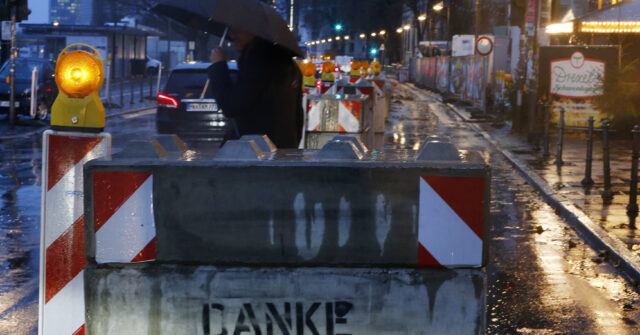Recent data reveals a significant rise in fear among Germans regarding potential terrorist attacks, with concerns about extremism and crime also on the rise. According to a poll conducted by Ipsos Mori, the percentage of Germans worried about a terrorist attack has escalated from 4% to 20% within a single year. This makes Germany one of the countries most apprehensive about terrorism globally, surpassed only by Israel. Interestingly, despite facing a consistent threat of terror attacks, just 50% of Israelis expressed concern, suggesting a deeply rooted resilience in the face of such realities. This stark contrast between the two nations underscores the unique psychological landscape in Germany, where the fear of terrorism appears to be intensifying without the immediate context of real threats.
Further analysis of the polling data reveals that concerns regarding extremism have also surged among Germans, jumping from 14% to 20%. Meanwhile, anxiety over immigration stands at 33%. However, crime emerges as the paramount issue of concern for 37% of the population, marking a dramatic 13% increase. Historically, Germans have prioritized financial issues like inflation and social inequality; this marked shift in sentiment towards crime and violence highlights a notable change in public priorities. While Germany’s fear levels may seem particularly acute, they exhibit a broader global trend where financial anxieties have receded in favor of fears related to public safety and security.
Globally, a parallel trend is observable, as crime and violence have become the primary global worry. In a recent polling round, crime was concerned about by an average of 31% of respondents worldwide, surpassing earlier anxieties regarding inflation, which had previously dominated public concern. While crime stands as the top worry among Germans, their levels of concern are less pronounced compared to nations such as Chile and Sweden, where as much as 65% of citizens express fears related to crime. This disparity raises questions about regional differences in perceptions of safety and the impact of societal context on public sentiment.
Interestingly, some European countries present a contrasting narrative, exhibiting notably lower levels of fear regarding crime. For instance, Hungarians express concern at only 7%, while Poles are at 11%. This discrepancy indicates that nations which have avoided significant shifts toward becoming multicultural societies may experience less fear related to crime and violence. Likewise, in Asia, Japan demonstrates low concern at 12%, further illustrating how cultural homogeneity may correlate with greater public confidence in safety.
As public sentiment transitions from financial concerns to fears surrounding crime and violence, it reflects a complex societal evolution influenced by broader global trends. This shift is not limited to Germany but signifies a pervasive global anxiety regarding personal and societal safety, suggesting that residents are responding to perceived threats in ways that amplify their fears. In contrast to previous eras marked by concerns about economic stability, contemporary issues surrounding crime and terrorism now dominate public discourse, reshaping the collective mindset and prompting adjustments in policymaking and public safety strategies.
In summary, the rising fear of terrorism and crime among Germans highlights a growing disconnect between financial anxieties and public safety concerns. The marked increase in terror-related sentiment reveals an acute awareness of potential threats, which mirrors trends observed in various countries around the globe. This collective apprehension around extremism and crime serves as a vital indicator of societal priorities evolving in response to contemporary realities, stressing the importance of addressing public safety within the broader context of societal well-being. As nations grapple with these shifting dynamics, there arises a critical need to foster resilience and promote effective coping strategies to mitigate fear and bolster community trust.

